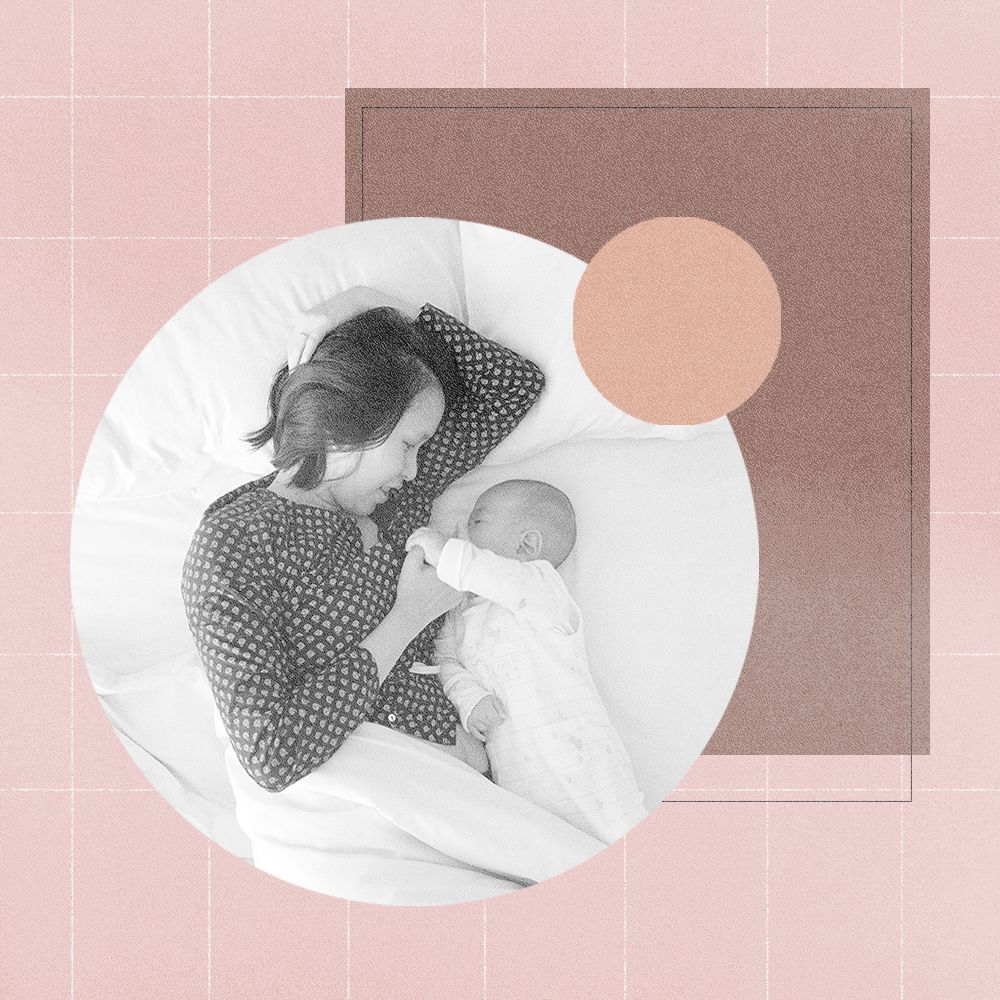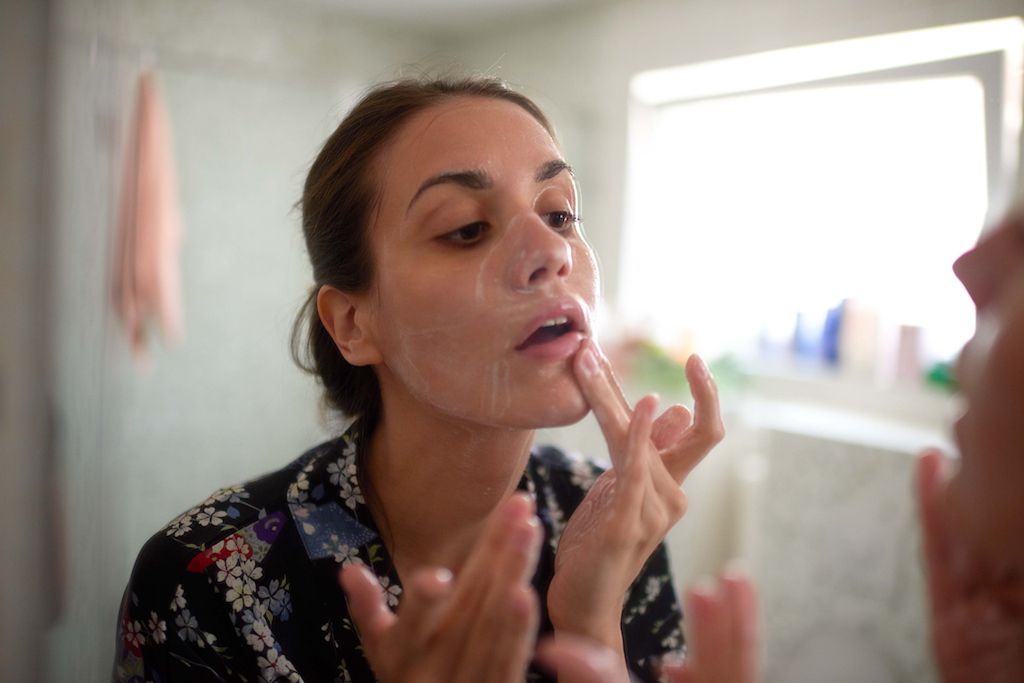How Your Body Changes After Becoming a Mom—And How to Handle it All

If we believed every Hallmark card, Mother’s Day should only consist of pampering, flowers, and, of course, a lot of love. With the holiday quickly approaching, moms are top of mind–whether or not you’re a mom yourself. And while, of course, we can offer some beauty tips and gifts for whoever you’re looking to treat this year, we also want to talk about some of the deeper stuff.
Becoming a mother is a life-changing event with often heavy mental, physical, and emotional changes. As Byrdie GM Leah Wyar says, “Where to begin…” Besides having less time to spend on yourself, there are hormonal and physical details to contend with. Hair, body, skin, nails—everything is different postpartum. And while no two moms are alike, we’re unpacking some of the experiences moms go through that get less mainstream attention. Read on for insight from moms and, of course, some tips from the experts on how to handle it all.
Meet the Expert
- Dr. Tricia Pingel, NMD is an Arizona-based naturopathic physician.
- Dr. Nava Greenfield is a practicing dermatologist at of the Schweiger Dermatology Group in Brooklyn, NY.
- Dr. Caroline Robinson, MD, FAAD, is a board-certified general, medical, and cosmetic dermatologist in Chicago with subspecialty expertise in alopecia and ethnic skin dermatology. She is also the CEO of TONE Dermatology and a NOW Expert.
Why Your Body Changes
“It takes a lot to grow a healthy little person,” says naturopathic physician, Dr. Tricia Pingel. Changing hormone levels, along with an entire second body sharing your nutrient pool, can lead to a few deficiencies. “It is incredibly common to emerge postpartum with deficiencies in iron, essential fatty acids, minerals, and B vitamins. And all of these deficiencies are known to take a toll on the health of our hair, skin, and nails,” says Pingel.
What’s more, those same hormonal changes can cause acne and other conditions, even if you’ve dealt with skin conditions. As one mom shared with Byrdie, “I saw an upswing in skin issues I had never experienced before like tone unevenness and seemingly random acne.”
That’s not to say you’ll definitely experience any changes at all. Every body is different, and as every mom will tell you, it’s about listening and understanding yourself to work through all the new experiences that come with motherhood.
Hair Thinning
The most common complaint from the moms we talked to? Hair thinning. After birth, many women struggle to regain their original hair thickness and end up with shorter pieces after a few months post-birth. One mom even recommended using a hair wand to slick back any regrowth.
The good news? Hair thinning generally only lasts around six months. Upping your vitamin and mineral intake can also help. According to Pingel, “consuming more foods rich in minerals and B vitamins can go a long way in aiding this process.”
“In some cases, supplementing with these nutrients can be helpful as well. Perhaps the biggest piece of advice is to try to reduce stress as much as possible, which is also known to help speed up this process,” she adds. While reducing anxiety doesn’t come easy to new moms (or anyone in general) simple tips like taking a micro-moment between tasks to hydrate and breath can go a long way.
The 5 Most Important Vitamins for Hair Growth
Breakouts
According to our experts, first-time acne and flare-ups are completely common after becoming a mother. “There has been a long-held misconception only teenagers are affected by acne. What we are finding is that acne can happen at any stage and can affect up to 15% of women,” says Dr. Caroline Robinson. Once again, hormonal fluctuations from pregnancy are often the culprit here.
While acne-fighting ingredients like Benzoyl peroxide and Glycolic acid are our usual go-to solutions during breakouts, Robinson warns that salicylic acid and retinoids should be avoided until after breastfeeding. Vitamin C also “can be helpful for improving the appearance of dark spots and reducing inflammation associated with acne.” As always, consult your doctor or derm before starting any skincare regimen with strong ingredients.
:max_bytes(150000):strip_icc()/product-15172e4ef09348feb6597b901418f7bd.png)
Now
Vitamin C & Sea Buckthorn Lotion
$13
Skin Dryness
Early motherhood can cause dry and cracked skin all over from changes that rapidly take place after labor. Dr. Nava Greenfield cites the “drop of estrogens” as a contributor to this issue. Luckily, a moisturizing body wash and cream or oil-based moisturizer will go a long way to fight dryness.
“I know with my four kids I had trouble finding time to eat and sleep, let alone take care of my skin,” says Greenfield. But, investing a little time each day is essential for long-term skin health. “I want new mothers to know that it may seem overwhelming to think about their skin now, but it will get easier as time goes on,” she adds.
:max_bytes(150000):strip_icc()/cleanser-b8824fd3e4a54ca08bdbe9fe9e8f688f.png)
Drunk Elephant
Kamili Cream Body Cleanser
$20
Stretch Marks
There’s no proven topical treatment to erase or reduce the appearance of stretch marks—and there’s no rule saying you have to try, your body is beautiful no matter what. That said, it’s fair to try to prevent them if that’s something that’s important to you. Robinson shares, “fully formed stretch marks are more difficult to treat.” So, consistently moisturizing and protecting your skin barrier is something she recommends to all her patients, especially pregnant women and recent mothers.
Stretch marks are incredibly common with or without pregnancy due to our bodies’ natural fluctuations in weight and size. But, if you’re serious about reducing the appearance of your stripes, Robinson recommends making an appointment with a board-certified dermatologist to discuss laser therapy and other procedures.
:max_bytes(150000):strip_icc()/necess-3332b4a4a5d24d82a8765b3746fcf807.png)
Nécessaire
The Body Lotion – With Niacinamide
$25
The Bottom Line
Body changes are inevitable, and all three of our experts recommend being gentle with yourself after becoming a mom. “There is so much to take care of postpartum with having a little baby around that most moms find they have little time to take care of themselves,” says Greenfield. She had to fight to find time for self-care with her four kids (“I had trouble finding time to eat and sleep, let alone take care of my skin”). But that time spent on yourself will make you a better, happier mother and human.
For Pingel, feeling gratitude is key. “Where you are today is exactly where you are meant to be, and tomorrow is another day. In a few more months, you’ll begin to feel like you again but even better!”
The Silent Expectations of Motherhood—And Why Pleasure Is an Essential Part of Wellbeing







